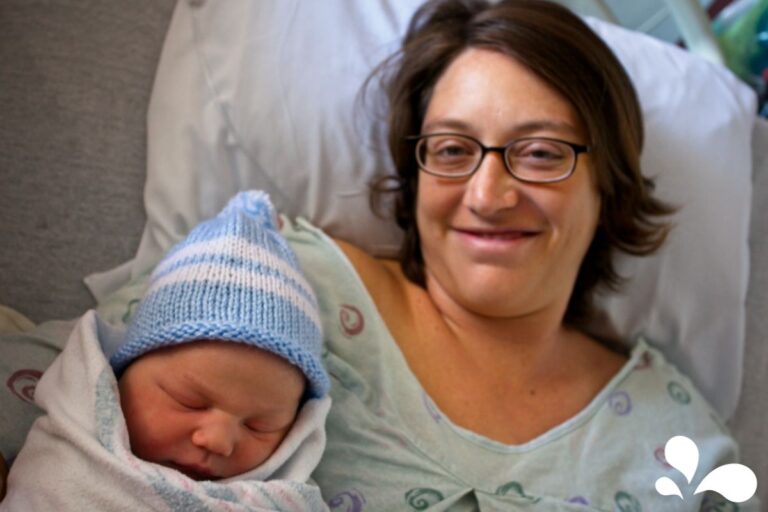Choosing a pediatrician can be intimidating. Pediatricians are wonderful, but they are human and come with their own habits and opinions. Those opinions can shape the care provided to you and your child, especially when it comes to breastfeeding, which is why it’s so important to ask questions when selecting a pediatrician.
So, is your pediatrician breastfeeding-friendly?

Here are eleven questions you can ask your pediatrician to find out.
What percentage of babies exclusively breastfeed at one month?
You would want an answer that is well above 50%. In fact, nationwide around 46.9% of babies are still breastfed at three months.
What growth chart does your office use?
There are a wide variety of growth charts available. Every baby grows on his or her own curve. Still, the highest recommended chart for a breastfed baby is the World Health Organization (WHO) chart.
How long does a newborn have to get back up to birth weight?
It should take about two weeks for baby to get back to birth weight. Your pediatrician will weigh baby at baby’s two-week well-check. At that point, babies are typically back to birth weight.
Do you have an IBCLC on staff or one you refer women to?
While pediatricians are an incredible health resource, it’s best to outsource a patient to an IBCLC. IBCLCs are recognized health professionals who have undergone rigorous lactation consultant training. This training uniquely qualifies IBCLCs to better assist breastfeeding efforts.
When do you recommend introducing solid foods?
The American Academy of Pediatrics (AAP) and World Health Organization (WHO) recommend exclusive breastfeeding until about six months. There are also signs to watch for to assess if baby is ready to start solids, such as sitting unassisted, strong head and neck control, and reaching for food.
Many pediatricians recommend you start offering foods around four months; feeding experts do not recommend this, and offering foods at four months is not breastfeeding-friendly. Most babies are not ready to be introduced to solids at that time.
How do you recommend introducing solids in addition to breastmilk?
When introducing solids, the pediatrician should mention signs to watch for readiness (see the answer to the above question). Breastmilk is the number one form of nutrition for the first year of baby’s life. That means solids foods are not meant to replace feedings at the breast. Baby should continue to get about the same amount of breastmilk until around one year of age.
Parents should introduce solids slowly–whether the pediatrician recommends purees or baby-led weaning doesn’t really matter. However, I wouldn’t start with rice cereals (this and starting solids around four months of age are very outdated; rice cereals tend to cause stomach problems).
At what age do you recommend weaning?
This is a trick question–there is no specific age you should wean your baby. The AAP recommends continuing “breastfeeding for one year or longer as mutually desired by mother and infant” (AAP recommendations). The WHO recommends “continuing to breastfeed for up to two years and beyond” (WHO recommendations).

How often should I be breastfeeding?
It is recommended to breastfeed at least every 2-3 hours (8-12 times per 24 hours) around the clock, especially for the first two weeks. Then you should continue to feed at least every 2-3 hours during the day and can maybe stretch out times between night feedings (if weight gain is good). You should continue to breastfeed 8-12 times a day for the first year.
Should I limit how long baby feeds?
No, don’t limit baby’s feed lengths. Let baby guide the feed to get the milk they need. A newborn will generally feed for 10-20 minutes on each breast (a full feeding can be 40 minutes or longer). As baby gets older and more effective at milk removal, feedings will take less time. As long as baby is actively sucking and swallowing, let them continue to feed.
What are your recommendations for supplementing, if needed?
There are times when baby may need supplementation; if that is the case, it is best to supplement with expressed breastmilk (your own or donor milk) rather than formula. Formula supplementation can be beneficial; however, if used frequently, it can cause a decrease in your breastmilk supply.
If supplementation is needed, work with an IBCLC to find what will be best for you and your baby.
How do you feel about night nursing/waking?
Night feedings and infant sleep are very controversial topics. There is no wrong or right answer for this. You want to find a pediatrician that fits what you would like to do when it comes to sleep.
Many pediatricians believe that babies do not need night feedings after 4-6 months–that is not always the case. Night feedings are still a time for baby to get the nutrition and comfort they need. Night feedings also play a significant role in keeping your breastmilk supply up.
Babies do not know how to “manipulate” you. They know how to communicate their needs–hunger, discomfort, fatigue, etc. You do what is best for you, your baby, and your family.
Conclusion
No matter your pediatrician’s answers, the best this to do for yourself and your baby is to prepare yourself and educate yourself about breastfeeding. An excellent first step to preparedness is to take the Breastfeeding Basics Online Course.








